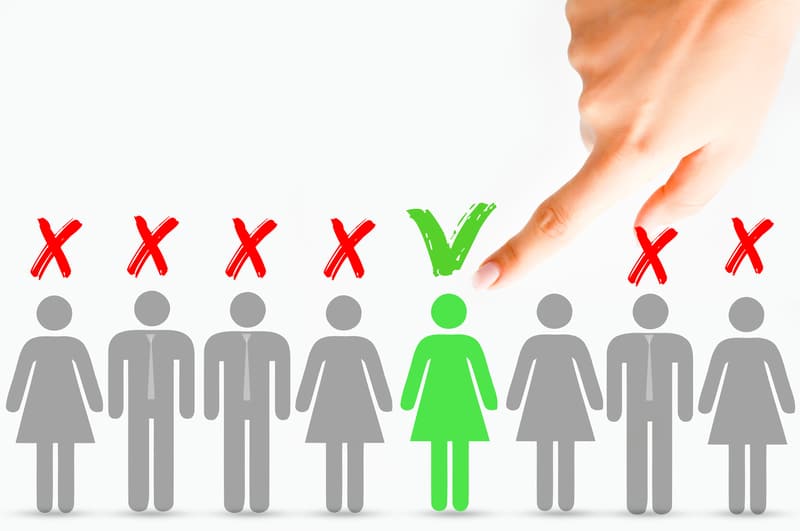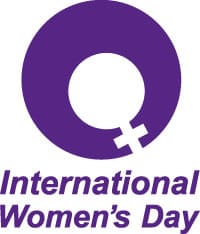
It is possible to be bias without even realising it as our minds make decisions intuitively. As humans, we like to think that logical arguments drive decision making, but in fact there is unconscious activity that goes on inside our brains which affects our judgements and decisions.
What is unconscious bias?
Unconscious bias refers to a quick opinion about a situation or individual without being aware of this opinion. Our brains form biases by using knowledge about social situations, attitudes, cultures, stereotypes and more. We can pick up and learn these things from the media and through experiences throughout life.
In recruitment, unconscious bias can affect your judgement and while it is important to use your experience to assess new employees, it can become a problem when you’re heavily influenced by your assumptions. Even if you try to remain unbiased, it can still lead to unfair favouring. Something as simple as a candidate’s name on a CV, the city they live in, the university they attended can all have an influence on your opinion.
Different types of unconscious bias in recruitment
There are several types of unconscious bias in recruitment. Therefore, by improving your awareness of these types, you can become more self-aware of your personal biases. Strengthening your ability to make fairer decisions during the recruitment process can ensure that you hire the best people for your business.
Affinity bias
Affinity bias is when you unconsciously prefer people who share the same qualities as you. It occurs in your brain that you see them as familiar and relatable, which are the sort of people we would want to be around. For example, if a candidate went to the same school as you or shared the same interests, you are more likely to prefer them over other candidates. With affinity bias, it can cloud your judgement of which candidates are the perfect fit for the company. Recruiting people with similar interests is a no brainer for some people as they think they would fit in well with the company culture if they see a resemblance. However, this may cause you to hire people with fewer diverse personalities which will result in a decrease in creative views and approaches to work.
Gender bias
Gender bias is obvious in a sense that one gender is preferred over the other. This often stems from beliefs about gender roles and stereotypes. Gender bias can lead you to unconscious bias in recruitment as you will lean towards candidates based on their gender and the qualities you associate with. For example, you may think that a man would fit a physical job rather than a female, or you may think that a female would suit a more caring role instead of a man. We often connect with the same gender more easily and we can relate to them on emotional and physical experiences. From the moment you post a job advert you’re already subconsciously in favour of one gender over the other, but there are ways in which you can prevent this.
Halo and Horns effect
The halo effect is where you focus primarily on a positive feature about a candidate. This positive feature enables you to view everything about the person in a positive light which makes you think they’re perfect. Similar to the affinity bias, this can cause you to overlook other information and can cause you to misjudge or notice any negatives.
The horns effect on the other hand is the opposite to the halo effect. This is where you primarily focus on a negative feature about a person which can cause you to not see any qualities. For example, if a candidate uses a particular phrase you don’t like or the way they speak or sit can cause you to dislike everything else they say and do. When identifying unconscious bias in recruitment, it is important to avoid concentrating on certain aspects and remember that one flaw or a perfect aspect doesn’t define the candidate you’re interviewing.
Beauty bias
Although we may not like to admit it, we all notice people’s appearances and associate it with their personality. Appearances are important, especially in the workplace as it reflects professionalism, but sometimes many of us judge harshly based on the way someone looks. Thinking that someone makes too much of an effort or hardly any effort at all can lead to assumptions being made about their personality and skills. You can’t associate someone who dresses nicely with them being organised or even the opposite. It is also easy to dislike features in a person, for example, you may think they’re too short or they don’t have many facial expressions. These subconscious thoughts will have an impact on your decision making and can essentially cause unconscious bias in recruitment.
How to remove unconscious bias in recruitment
It is difficult to avoid all unconscious bias in recruitment, but hopefully after reading some different types of unconscious bias, you will be able to notice when you’re slipping into that mindset. The first step to take when removing unconscious bias in recruitment is to ensure that all employees have adequate training and are mindful of the bias that can impact recruitment. During the interview process it is vital that you take your time, especially in the decision-making process. Choosing the right person is more important than making a fast pick to “save you time and money”, as often it doesn’t, and this mindset can also influence you to make snap judgements and opinions.
Organisations also need to think about how they are assessing people through the recruitment process. Identifying what skills, experience and competencies you need before hiring is essential if you are trying to remove unconscious bias in recruitment. Having a diverse workforce is something all companies are working towards, and unconscious bias in recruitment could sabotage these efforts if you are looking for people who are like those who are already employed. The need to hire people with different views and experiences should be a priority for companies as it is essential in helping a business to grow.
Including a variety of people within the recruitment process can help to remove unconscious bias. Other peoples’ view and input may help you to address any biases that occurs during the interview. Noting down your opinions and impressions throughout the interview can also help you to reflect and discuss with other people in your organisation before making your final decision. Having other people in the recruitment process and discussing opinions after can help to reduce unconscious bias in recruitment and will help you reach a fairer unanimous decision.



